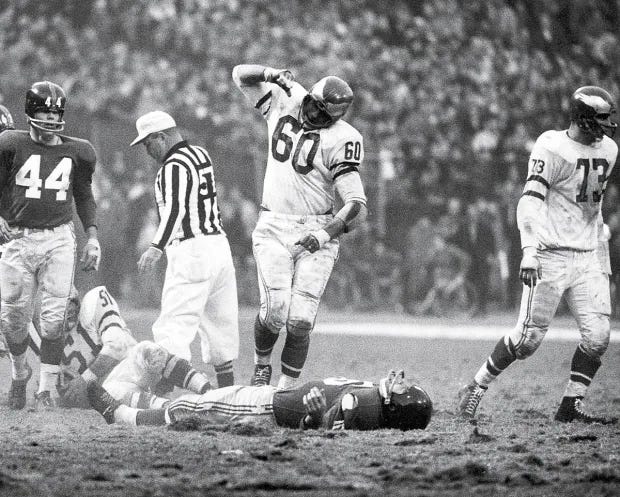Step to It
In this week's Rundown, Apple announces a new fitness-focused watch, walking fast reduces dementia risk and eating more at breakfast rather than dinner has no impact on your metabolism.
The Rundown
Ultra Apple. September means Apple announcements and at this year’s event the company unveiled the Apple Watch Ultra, a fitness-focused version of the wearable aimed at lovers of endurance sports, scuba divers and backcountry fans.
On the left-hand side of the watch, Apple has added a programmable “Action” button that allows you to set which apps open when pressed so it’s easy to get the Workouts app and start running, cycling or diving. The new automatic diving detection means you can instantly see your depth and while out running or cycling, a new GPS frequency will make it easier to get your location in cities with tall buildings.
Thanks to three microphone points, your voice can now be heard in less than ideal conditions and a speaker upgrade allows for conversations on a windy mountain or trail.
Step to It. A new study from researchers at the University of Sydney and the University of Southern Denmark suggests that how fast you walk may be just as important in lowering your risk of dementia as how many steps you take each day.
For the study, the team monitored over 78,000 adults in the UK between 2013 and 2015 using wearable trackers. They compared this data with the participants’ health outcomes seven years later.
The researchers found that walking just under 10,000 steps a day (9800 to be exact) lowered the risk of dementia by 50% but the intensity of the steps resulted in even stronger associations. Taking 112 steps per minute for 30 minutes lowered dementia risk by 62%.
If a 9800 daily step goal feels like a big ask, less steps also have benefits. The study found that even 3800 steps per day is associated with 25% lower incident dementia and if those steps are purposeful or brisk, all the better.
Breakfast Fit For a King. The saying that you should eat “breakfast like a king, lunch like a prince, and dinner like a pauper” is based on the idea that having most of your calories in the morning optimizes weight loss by burning those calories more efficiently. A new study disagrees.
Published in the journal, Cell Metabolism, the research found that whether you eat your largest meal early or late in the day does not affect how your body metabolizes calories. But, people who eat a big breakfast do report feeling less hungry later in the day, which could lead to easier weight loss.
The team recruited 16 men and 14 women, all overweight or obese, to have their diets regulated and their metabolism measured. They were randomly assigned to eat either morning-loaded or evening loaded diets for four weeks (30% protein, 35% carbohydrate, 35% fat). After four weeks, they had one week where calories were balanced throughout the day and then they switched to the opposite diet for four weeks.
The study found that energy expenditures and total weight loss were the same for both the morning-loaded and the evening-loaded diets. Participants lost an average of about seven pounds during each of the month-long periods.
But, those who ate the bulk of their calories at breakfast did report that their appetites were better controlled and they felt satiated throughout the day.
Replay
This week’s vintage moment in sports culture is brought to you by Philadelphia Eagles linebacker Chuck Bednarik who laid out New York Giants running back Frank Gifford at Yankee Stadium on Nov. 20, 1960. The hit forced Gifford to temporarily retire from football. Photo: John G. Zimmerman.


